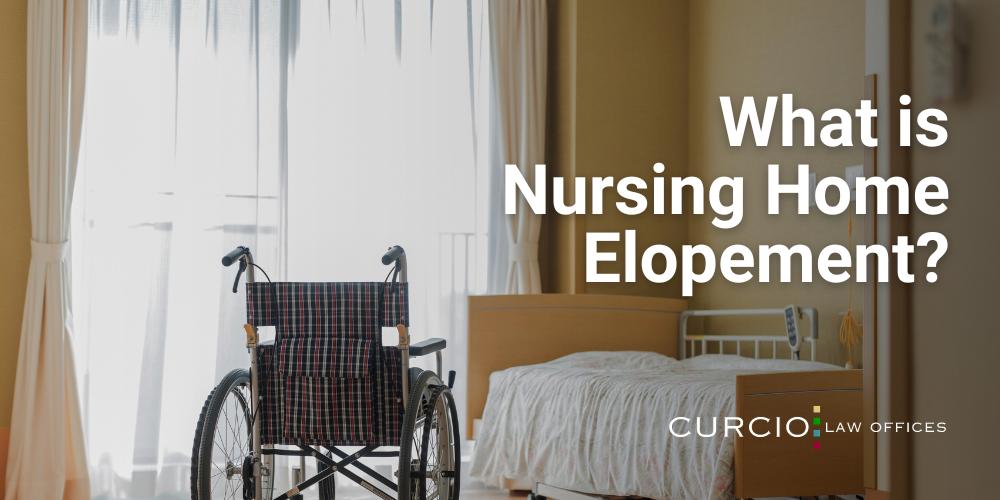Many families have no choice but to trust nursing homes and assisted living facilities to provide their loved ones with the care they need in their elderly years. Nursing homes are paid thousands of dollars per patient every month to ensure that they’re clean, clothed, fed, medicated, and safe. Unfortunately, not all nursing homes have the staffing and training needed to meet these basic needs. As a result of neglectful care, some nursing home patients find their way out of their facility and begin wandering the streets. This is often referred to as nursing home elopement, and it can cause an elderly person to suffer from serious injuries.
If your family member has suffered from injuries as a result of nursing home abuse or neglect, the Chicago nursing home abuse and neglect lawyers at Curcio & Casciato are here for you. We can help you hold the negligent nursing home responsible for the damages their staff caused. Call us at (312) 321-1111 to schedule a free initial consultation with a member of our team today.
What is Nursing Home Elopement?
Many people hear the word “elopement” and think of a young couple deciding to get married in a spur-of-the-moment way. In the context of nursing homes, however, “elopement” refers to something very different. Nursing home elopement occurs when elderly residents suddenly leave nursing home facilities and travel, usually by foot, without supervision. While some wandering patients are caught leaving and led back into the facility, some patients can leave completely unnoticed.
What is the Difference Between Elopement and Wandering?
When talking about nursing home elopement, the term “wandering” often comes up. While elopement describes a resident leaving a nursing home or assisted living facility without supervision, wandering describes a resident walking or otherwise moving inside the facility without supervision. An example of this would be if a resident was walking through the halls at night when they were supposed to be in bed.
When nursing home residents wander inside and outside of their nursing home or assisted living facility, they are at risk of suffering from serious injuries. That’s why it’s so important that every nursing home takes measures to prevent both as best as they can.
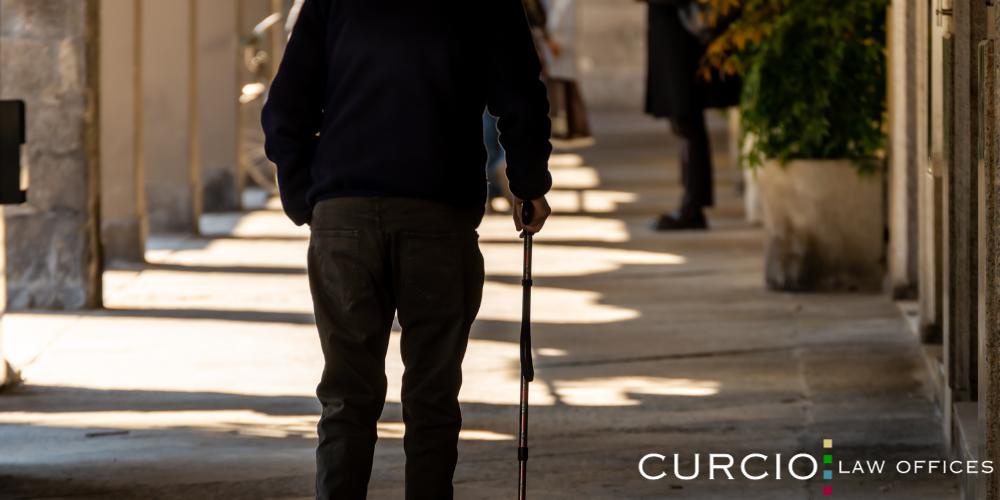
What Are Common Causes of Nursing Home Elopement?
Elopement in nursing homes happens for a variety of reasons. One of the most common reasons is when residents with Alzheimer’s disease, dementia, or other cognitive impairments suddenly have the idea or urge to leave.
This can be because they are in an unfamiliar environment, or it could be because they falsely believe they have some responsibility they need to take care of, like walking their dog. This could also be caused by a patient getting up to use the restroom, forgetting where they were going or what they were doing, and walking through the exit doors.
While mental impairment can be one of the leading causes of nursing home elopement, there are plenty of other reasons nursing home residents may leave their facility. These can include things like:
- Medication changes;
- Medication errors in nursing homes;
- Unwelcome changes in their lifestyle or environment;
- Relocation stress syndrome;
- Physical or emotional distress;
- Lack of sleep or sleep disorders;
- Confusion; and
- Nursing home abuse.
Risk Factors for Nursing Home Elopement
Certain nursing home residents are at a higher risk of elopement than others. Many nursing home elopement cases involve patients suffering from:
- Alzheimer’s disease;
- Dementia;
- Sleep disorders;
- Mental impairments like delirium, PTSD, anxiety, and schizophrenia;
- Boredom; and
- Loneliness.
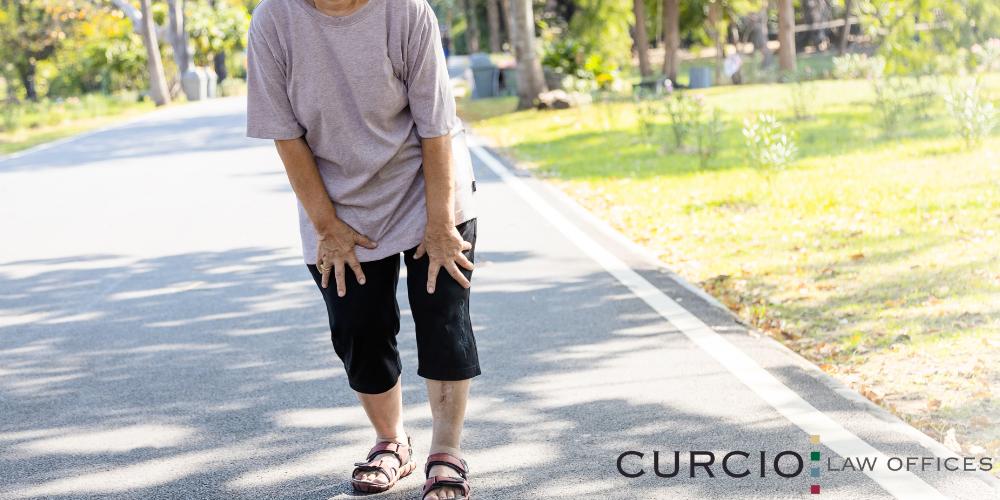
What Are the Dangers of Nursing Home Elopement?
When nursing home patients wander, whether that be inside or outside of an assisted living facility without adequate supervision, they are at risk of serious injury and even death. Wandering through unfamiliar environments could cause an elderly person to:
- Drown;
- Overexert themselves;
- Become dehydrated;
- Suffer from medication withdrawals;
- Have a medical emergency, such as a heart attack;
- Fall and sustain injuries, like traumatic brain injuries;
- Get stuck outside during extreme weather; and
- Be hit by a car or bike as a pedestrian.
Preventing Elopement Among Nursing Home Residents
Nursing home staff have a responsibility to patients, as well as the patient’s family members, to protect residents and prevent elopement incidents from happening. The Nursing Home Reform Act of 1987 lays out the federal regulations nursing homes must abide by, and simply following those guidelines can help prevent patients from wandering off. Additionally, staff members can and should implement additional measures to prevent resident elopement and wandering.

Federal Regulations
One of the best ways to prevent elopement in nursing homes is to follow the guidelines set out by the Nursing Home Reform Act. In order to prevent elopement, nursing home facilities should:
- Maintain proper staffing;
- Make care plans for all residents;
- Supervise medications and provide proper medication administration; and
- Maintain accurate records of all patients.
That way, they can ensure all of their patients are receiving the care they need in order to be happy and healthy within the facility. Having care plans for each patient can help them make a list of all current patients, which could help them identify when they have a missing patient. Additionally, updated and complete records can help staff identify patients that are at risk for wandering and elopement.
Additional Elopement Prevention Measures
Nursing homes and assisted living facilities should ensure that their residents receive adequate supervision when moving inside the facility and put measures in place to prevent patients from leaving the facility. This can include implementing additional security measures, like a proper exit procedure, or performing frequent checks on residents to ensure they are accounted for.
Staff members should also be scheduling patient elopement assessments and fall risk assessments. If they have a good understanding of their residents’ elopement and fall histories, they can identify which residents are most likely to leave the facility, and then monitor them more closely. Nursing home staff should remain vigilant around high-risk residents, like those that suffer from a form of mental impairment or complications of immobility in Chicago nursing homes.
In addition to all of this, every nursing home should have a security system in place to help prevent elopement. While it may not be feasible for an assisted care facility to have security personnel on campus at all times, they can at least install alarm systems and always have someone at the reception desk.
Since elopement can have such serious risks, it’s important for nursing homes to take it very seriously. When they don’t, they may be found liable for damages.
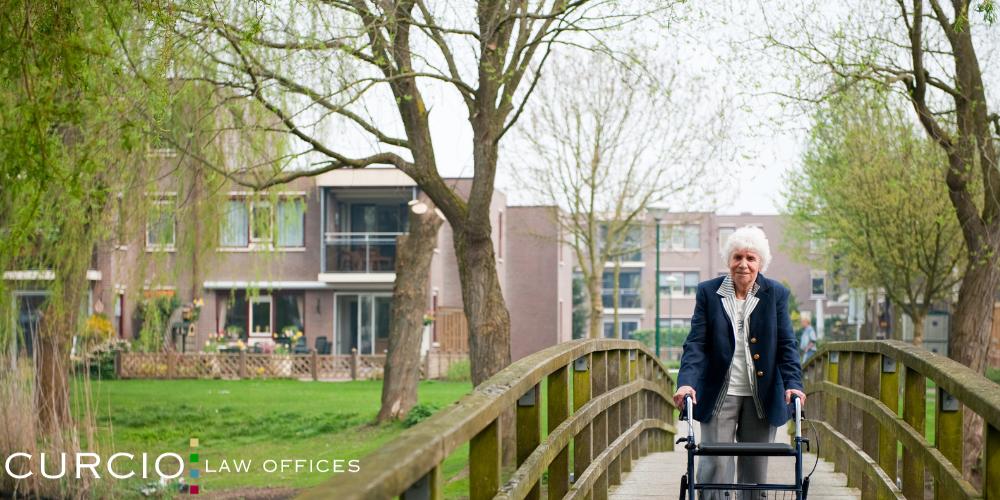
Is Elopement a Sign of Nursing Home Neglect or Abuse?
While nursing home elopement doesn’t necessarily mean a resident is being abused, a patient leaving a nursing home facility could indicate that they are not receiving adequate care within the facility. It could also indicate that they are suffering from things like physical abuse, emotional abuse, or abandonment from nursing home staff members, and are trying to escape their situation.
Patients could also leave a nursing home facility because they are not receiving the proper care for their physical or poor mental health in nursing homes. For example, if an at-risk resident is not receiving the psychiatric care they need, they may have less mental clarity and may try to leave the facility more frequently.
Additionally, an assisted living facility may be unable to implement the necessary security measures to prevent residents from wandering due to nursing home understaffing. Nursing homes should be able to attend to the personal safety needs of each of their residents. When they can’t, this can be cause for serious concern.
Other Signs of Nursing Home Neglect
In addition to elopement, there are some warning signs of nursing home abuse that family members should look out for.
Physical signs of abuse can include:
- Broken bones
- Bedsores
- Bruises or lacerations
- Nursing home infections
- Traumatic brain injuries
Signs of neglect can include:
- Sudden weight loss
- Unclean clothing
- Unclean bed sheets
- Poor hygiene in nursing homes
- Malnutrition in nursing homes
Emotional signs of abuse can include:
- Withdrawal
- Fear of being alone or being in the living facility
- Sudden behavior changes
Can You Sue an Assisted Living Facility for Elopement?
Yes, if your loved one has suffered from injuries due to nursing home elopement, you may be able to recover compensation for the damages they suffered. Elopement in nursing homes is preventable, so when confused residents are able to walk out of the facility without anyone stopping them, the incident can be a direct result of nursing home negligence.
Nursing home professionals should have the proper training on how to prevent elopement from happening in the first place. For example, if an elderly person has dementia-related issues, nursing home staff should know to evaluate that person’s elopement risk and take measures to prevent them from leaving unsupervised. Nursing home residents with a higher risk of falling should be more closely monitored by staff, especially when moving without aids like a walker or a wheelchair.
When nursing home staff fail to prevent wandering and elopement incidents, they put their patients at risk for fall accidents, serious injury, and even death. If your loved one suffered from injuries or died as a result of elopement, call the Chicago elder abuse lawyers at Curcio & Casciato. With over 50 years of experience, you can rest assured that your case will be handled quickly and professionally. Call us at (312) 321-1111 to schedule a free case evaluation with one of our legal experts.
Nursing Home Abuse and Neglect Damages
When a nursing home fails to protect your loved one, you may be able to receive financial compensation on behalf of your family member. In a nursing home abuse case, you may be able to recover compensation for:
- Medical bills;
- Physical therapy and rehabilitation bills;
- Physical pain and suffering;
- Emotional distress; and
- Funeral and burial expenses in the case of wrongful death. For more information about damages for wrongful death in a Chicago nursing home, call a Chicago wrongful death attorney today.
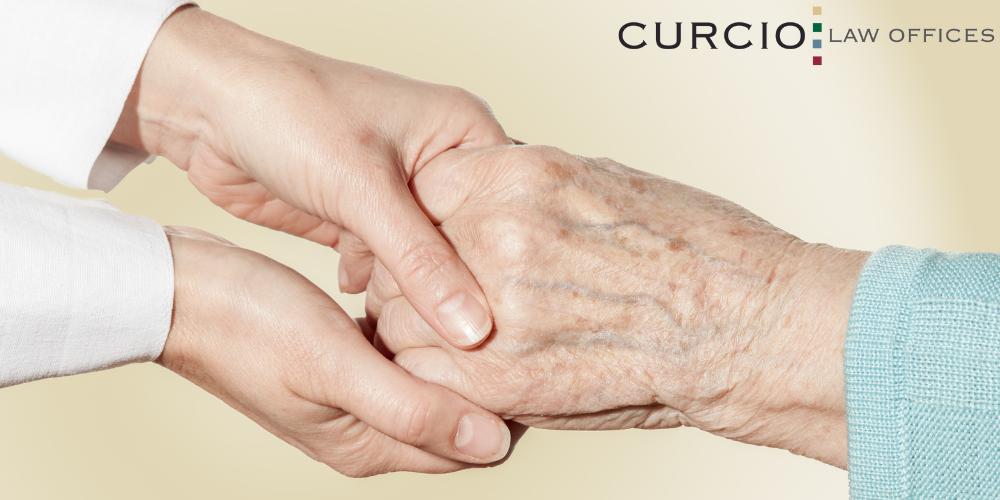
Call Chicago Nursing Home Abuse and Neglect Lawyers at Curcio & Casciato Today
As our family members get older, we want to make sure that they are safe, comfortable, and provided with the proper care that they need. Some older people, like those with Alzheimer’s disease, require extra care and attention to keep them safe. That’s why so many people trust nursing home facilities with providing their loved ones with care.
When nursing home facilities aren’t properly staffed, or their existing staff fails to provide adequate care to their patients, they put their patients’ lives in danger. If your family member has suffered from a lack of care in an assisted living facility that led to elopement, the nursing home abuse lawyers at Curcio Law are here. We want to help you receive the compensation you deserve–call us at (312) 321-1111 to schedule your free consultation so we can get started with your case.
